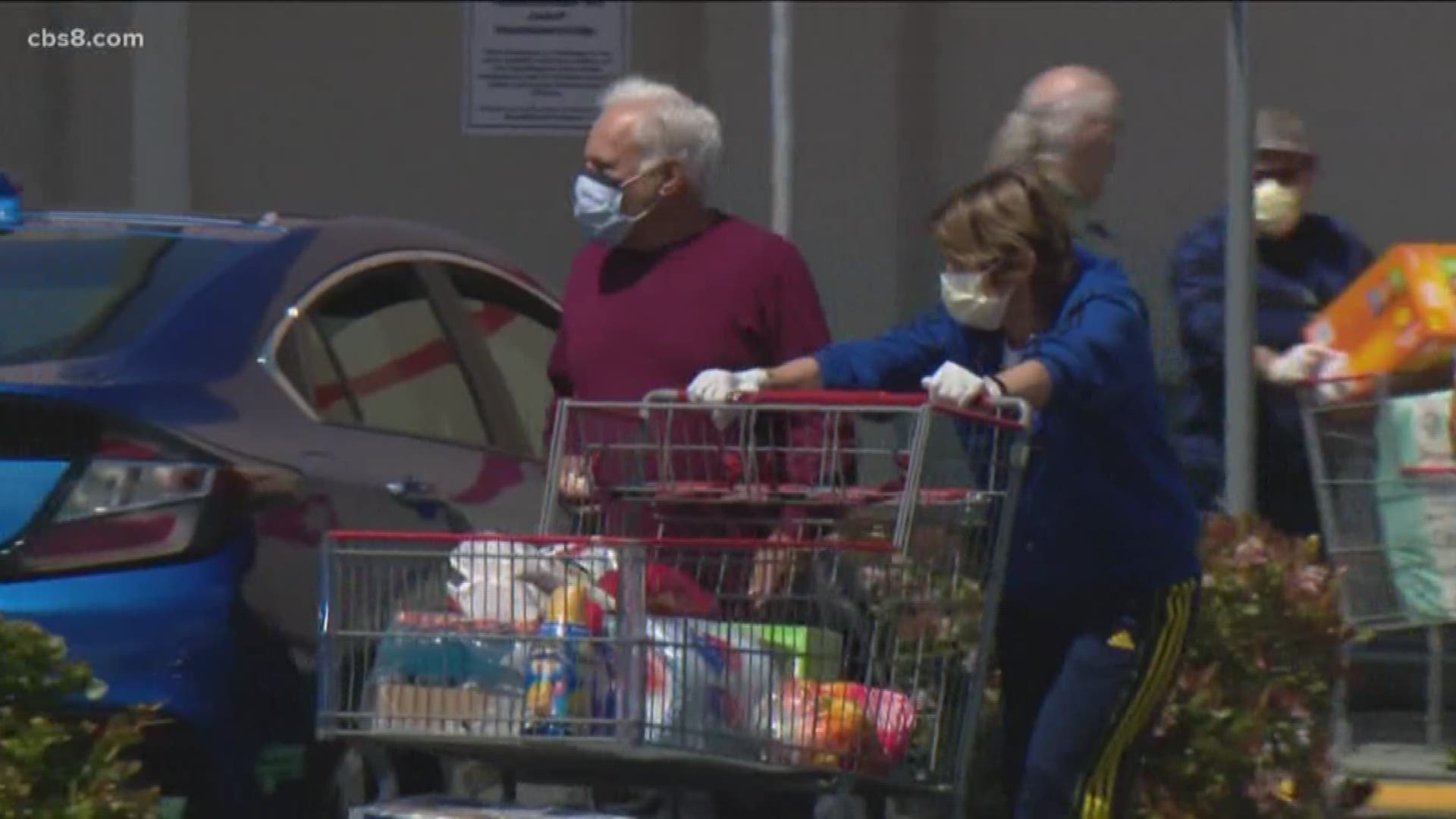SAN DIEGO — The Better Business Bureau warned consumers about the dangers of counterfeit masks and false advertisements after local health officials urged San Diegans to cover their faces when out in public.
“BBB is seeing an increase in price gouging and other COVID-related scams. Specifically, for masks, we’re seeing not just businesses, but individuals obtaining masks and then increasing the price for other consumers who may be seeking to secure these essential items,” said Skylar Crowley, with the Better Business Bureau Serving the Pacific Southwest.
Several News 8 viewers reported questionable online retailers popping up after local stores ran out of masks.
In other cases, the BBB is seeing an increase in reports of fraudulent sites attempting to steal personal information.
“Scammers are pretty efficient at contacting consumers through phishing emails,” said Crowley. “They may encourage the consumer to select a link or download that not just prompts them for personal information that could be used for identity theft, but may compromise files on their computer.”
If you’re unsure how much an item should cost, you can try going to the website of a known, reputable retailer. Even if they’re sold out, many are leaving the pricing data online, which can be used for comparison.
Law enforcement is investigating reports of price gouging across the country.
Last week, the FBI arrested a New York man on multiple charges after investigators said he tried to sell medical equipment to doctors and nurses at a 700% markup. According to the complaint, a doctor paid approximately $12,000 for 2,000 3-ply surgical masks, 1,000 N95 masks, 2,000 sterile gowns and 800 gowns made of Hazmat material. Equipment seized by the government was later distributed to nearby medical staff in need.
Locally, the San Diego County District Attorney’s Office received 240 complaints of price gouging and sent warnings to 24 businesses. Investigators are continuing to review other complaints.
“We looked at everything from masks that were charged three to four times the price, to milk, water, eggs, and toilet paper. We take those seriously,” said District Attorney Summer Stephan.
The BBB recommended consumers:
- Verify the authenticity of a website
- Make sure there is a secure site to submit payment
- Check there is real and working contact information
Before buying equipment from an unknown retailer:
- Verify the claims made by the seller against those from the manufacturer.
- Consider doing a reverse image search to see if the pictures are being used elsewhere with different claims.
- Watch for inflated shipping fees or delivery dates far in the future.
You can report suspected price gouging to the San Diego District Attorney’s Consumer Protection Unit at (619) 531-3507 or to the California Attorney General’s Office.
----------------------------------
RELATED: Report: Navy captain fired after requesting COVID-19 help tests positive for novel coronavirus
View all News 8 coverage of coronavirus / COVID-19
News 8 has joined forces with The San Diego Foundation to raise immediate, emergency funds for our most vulnerable neighbors in need. Here is how you can help.
We also have a Frequently Asked Questions page we will continue updating with the latest information and reports.
Click here to watch "Facts Not Fear," a News 8 Special on coronavirus from March 26, 2020.
BACKGROUND:
According to the CDC, coronavirus (COVID-19) is a family of viruses that is spreadable from person to person. Coronavirus is believed to have been first detected in a seafood market in Wuhan, China in December 2019. If someone is sick with coronavirus, the symptoms they may show include mild to severe respiratory illness, cough, and difficulty breathing.
Currently, there is no vaccine, however, the CDC suggests the following precautions, as with any other respiratory illness:
Know how it spreads:
There is no vaccine
The best way to prevent illness is to avoid being exposed to the virus
It is thought to spread mainly from person-person between people in close contact
And believed to be spread by respiratory droplets produced when an infected person coughs or sneezes
Protect yourself
Wash your hands with soap and water for a minimum of 20 seconds
If soap and water aren't available, use hand sanitizer that contains at least 60% alcohol
Avoid touching your eyes, nose, and mouth
Avoid close contact with people who are sick
Put distance between yourselves and others
Protect others
Stay home when you are sick
Wear a facemask if you are sick
Cover your cough or sneeze with a tissue, then throw the tissue in the trash
If you don't have tissue, cough or sneeze into the inside of your elbow
Immediately wash your hands after coughing and sneezing
Clean and disinfect frequently touched objects and surfaces using a regular household cleaning spray or wipe
You can find information on disinfecting and cleaning on the CDC's How to Protect Yourself page.
The California Department of Public Health has issued guidance on the use of cloth face coverings to protect against the spread of the novel coronavirus COVID-19.
The County of San Diego has made face coverings mandatory for those working with the public including grocery stores, pharmacies, gas stations, convenience stores, and similar businesses.
While officials say these face coverings are not a substitute for practices like social distancing and handwashing, there is evidence to suggest that the use of cloth face coverings by the public during a pandemic could help reduce disease transmission. Officials do not recommend the public use N-95 or surgical masks which are needed by health care workers and first responders.

